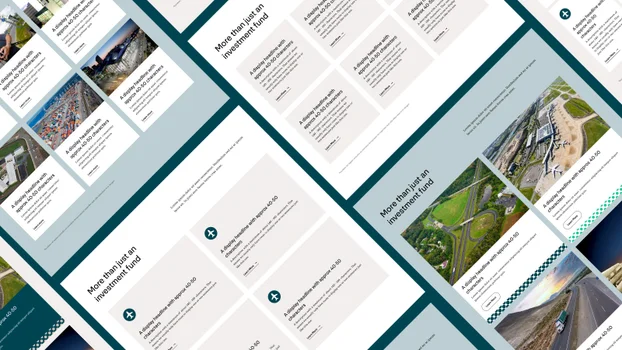Discoverability is important for all businesses and industries, and the rise of conversational AI tools and large language models (LLMs), like ChatGPT, Claude, Perplexity and Gemini, are changing the way people discover information and brands.
What is Generative Engine Optimisation (GEO)?
Generative Engine Optimisation, or GEO, is the practice of improving your visibility in AI-generated search responses by making your website and content more machine readable and easier for AI models to understand. This includes visibility in AI platforms such as:
- Google AI Overviews (powered by Gemini)
- ChatGPT
- Gemini
- Perplexity
- Claude
- Copilot
- Grok
- Deepseek
How does GEO differ from search engine optimisation (SEO)?
GEO helps AI models read and summarise your content while SEO helps search engines crawl and rank it.
Unlike in traditional search results, generative engines don’t use 'ranking' in the conventional sense. Instead, they summarise and reuse content based on natural language processing, entity relationships and source credibility. The goal of GEO isn't just to show up – it's to show up accurately, with current, well-structured information that directly answers someone’s question.
The good news is that many of the tactics that work for SEO still apply (in fact, Google recommends applying the same SEO best practices as your foundation), but LLMs also weigh different factors. A successful search program of work optimises for both traditional and generative search and prepares your digital ecosystem for the next wave of AI, including emerging agentic behaviours.
Why GEO matters
Generative engines are changing how people:
- discover brands
- ask questions and research products and services
- compare solutions
- quickly find answers to informational queries.
As more people adopt AI-powered search and get answers directly in AI platforms, we are seeing clicks to websites declining. In this new world, the goal of search is no longer just traffic, it's visibility in AI results.
AI engines often cite a minimum of three-to-five sources (sometimes upwards of 20) in their summaries, and some don’t link to their sources at all. If your content isn't designed for LLMs to understand and cite, your brand might be invisible in this growing search channel.
Read more about the six ways generative search is reshaping how we search and Profound's list of the top websites LLMs tend to reference and cite in their responses.
GEO strategies we use
To help your business appear in generative engines and stay visible in this new search landscape, here are some of the strategies we focus on at Luminary:
Dynamic content rendering
We make sure generative AI tools can reliably access and interpret your content. When we build websites, our approach prioritises server-side rendering and pre-rendering because they provide consistent, machine readable HTML that LLMs can parse more effectively.
When rendering or inference issues arise, we can implement fallback controls such as llms.txt files to guide how LLMs understand and interact with your website.
Well-structured, accessible content
We design content that's easy for both humans and AI models to scan, understand and reuse. This includes:
- clear, purposeful content headings
- hierarchical, sequential header tags
- content chunking for single-idea sections
- lists and tables for structured information
- transcripts and captions for video and audio
- metadata and descriptive alt text
- schema mark-up to reinforce meaning
- strategic internal linking to connect related concepts.
This supports machine readability and natural language processing (NLP) parsing.
Defining your entity
LLMs rely on entities to understand who you are and where your expertise sits. We help make sure your content clearly communicates:
- who you are
- what you do
- who you serve
- what topics you're an authority on
- your partners and affiliates.
Content hubs
We build topical authority by creating content hubs that group related topics making it easier for AI models to understand your expertise and the relationships between concepts.
Conversational language
We write the way people speak and search. We help rewrite pages and design new ones using:
- answer-led writing for direct responses
- FAQs components for common queries
- how-to articles
- headings written in natural language (think prompts, not keywords).
Unique data and examples
AI platforms prefer original insights over generic advice, and they have a bias for recency. We guide you in publishing content that demonstrates your industry experience and authority over time, such as:
- research
- anonymised data
- case studies and learnings.
Our GEO services
You can include GEO in the Explore and Build phases of your website project, or as part of an ongoing Grow retainer. It also pairs well with traditional SEO efforts for maximum organic visibility.
Manual GEO Benchmarking
We benchmark how and where your brand appears in AI results and identify opportunities to improve relevance and visibility.
Manual benchmark and analysis can include:
- visibility in AI search results
- accuracy and sentiment of summaries
- content LLMs are using
- emerging themes and opportunities
- AI bot traffic
- human referrals from LLMs.
Comprehensive GEO benchmarking with a paid tool
We work with leading AI visibility platforms - including Profound, Scrunch, AthenaHQ and Writesonic - to provide deeper, ongoing measurement.
Analysis available with an AI visibility platform subscription:
- visibility rate
- citation rate and accuracy
- competitor comparison
- sentiment analysis
- prompt coverage by topic
- branded vs. non-branded visibility
- visibility by AI model/LLM
- trends over time.
GEO audit and strategy
We assess how LLM-friendly your website is and provide a roadmap for improving your visibility across:
- the accessibility and parsability of your code and content
- your content’s structure and machine readability
- the reputation signals of your brand online.
GEO strategy
Define an approach for removing roadblocks to crawlability and parsability, creating content that appeals to LLMs and the people using them, measuring success in this zero-click world, and workflows for monitoring impact, and ongoing optimisation.
Implementation
GEO work typically spans development, UX, content, SEO and analytics. We provide holistic support across your teams and partners to improve your visibility and accuracy in generative search, with a supporting measurement framework.
GEO content design workshops
We run half-day training sessions with content and marketing teams to build practical GEO capability in-house. The session covers: structuring content for AI summarisation and inference, writing with entity-first techniques, and designing for zero-click outcomes.
Stakeholder engagement
We help senior teams understand that success in AI search isn’t just about clicks. It’s about brand visibility and narrative control. We provide messaging and support to align teams around this shift.
FAQs about generative engine optimisation
What is GEO?
GEO stands for generative engine optimisation, a strategy to help your brand appear in the responses of AI-powered search tools like ChatGPT, Claude and Google AI Overviews.
How is GEO different to SEO?
SEO focuses on ranking in traditional search results while GEO focuses on being cited, mentioned or summarised by LLMs. While the two disciplines share tactics, GEO requires extra focus on entity definition, structure, natural language processing (NLP) readability and zero-click content. GEO also helps prepare websites for agentic AI.
Can I do GEO without doing SEO?
No. GEO relies on strong SEO foundations. AI models still depend on crawlable pages, clean HTML, good structure and high-quality content to understand and reuse your information. SEO is the foundation GEO builds upon.
Research from Yext shows people still use and trust search engines, which means your search strategy needs to be two-fold.
Will GEO help with brand trust?
Yes – showing up in trusted AI summaries can build brand authority and increase confidence in your expertise, even without clicks.
Glossary: GEO and AI search terms
| Term | Definition |
| GEO | GEO stands for Generative Engine Optimisation and is the practice of optimising websites and digital assets to be machine readable. |
| AEO | AEO stands for Answer Engine Optimisation and is the practice of optimising content to be directly lifted or cited to answer Q&A responses in AI-powered search. It is a subset of Generative Engine Optimisation (GEO). |
| Generative engine | A search engine or tool using LLMs to return summarised or AI-generated results (as opposed to a search engine which uses an algorithm to provide results) |
| LLM | Large language model, like GPT-4 or Claude, trained to understand and generate human-like text |
| Promptability | How easily your content is picked up and cited by an AI in response to user prompts. Also commonly known as “snippability.” |
| Entity | A unique, recognisable person, place or organisation that LLMs associate with a specific topic. Entities help LLMs make sense of how brands fit into the world. |
| Zero-click content | Content that satisfies user intent directly in the search or AI result without requiring a click |
| Agentic AI | Agentic AI refers to AI systems that can take action on a user’s behalf. These models interpret intent, make decisions and complete tasks, relying on structured, machine-readable content and machine-operable websites to understand your services and interact with your site effectively. |
Our expertise and thought leadership
Key people and musings from our blog on generative engine optimisation (GEO), answer engine optimisation (AEO) and preparing for agentic AI.

Shayna Burns
SEO Principal
Shayna oversees Luminary’s SEO and generative engine optimisation (GEO) services from audit and strategy through to execution and training.

10 min read
WTF is GEO? A guide to staying visible in AI search
Feeling overwhelmed by all the new acronyms flying around in search and content marketing? You’re not alone. From GEO to AIO and AEO to SXO, it’s hard to know what’s what – and what you actually need to focus on.

6 min read
A practical guide to writing AI-friendly content
Learn some practical SEO and content tips for structuring and optimising your content so it’s more likely to be referenced in AI-generated summaries and overviews.

6 min read
Generative AI: How to prepare for the next evolution in organic search
What is generative AI, how does it impact discoverability in search, and what should you be doing now to prepare for the change?

5 min read
How to improve the SEO and AI-friendliness of your PDFs
While HTML remains the top choice for SEO and AI, many organisations still rely on PDFs. This guide offers practical strategies to optimise your PDFs for better discoverability and readability by search engines and AI tools.

7 min read
Six ways generative AI is reshaping our search experience
Adoption of AI-powered search is picking up steam, and it’s changing where and how users are searching. Marketers have an opportunity to take a fresh look at their content, web development and measurement priorities to better align with generative AI’s unique criteria using generative engine optimisation (GEO) tactics.

7 min read
Evolving your SEO strategy for Google’s upcoming AI search experience
Search, as we know it, is in a state of flux. In Australia, we wait with curiosity for Google to roll out its new AI-generated search results module, AI Overviews, known as AIO.
And the proof?
A snapshot of the clients we support with generative engine optimisation (GEO) and SEO.

Cancer Council Australia
Cancer Council is the nation’s leading cancer charity, and the only Australian charity working across every aspect of every cancer.

IFM Investors
IFM Investors appointed Luminary to deliver a new corporate website to deliver on the needs of its growing international audience.

Beyond Blue
Beyond Blue needed to transition away from a legacy CMS which was preventing it from supporting the mental health of the community in the best possible way.

Melbourne Business School
Home to leading executive education programs, Melbourne Business School needed a website that would match the calibre of its courses.
In summary
- Generative Engine Optimisation (GEO) helps your brand show up in AI-generated search results, like ChatGPT, Google’s AI Overviews, Perplexity, Claude and Gemini.
- It builds on SEO fundamentals, but also accounts for how large language models (LLMs) interpret and cite information.
- Luminary offers GEO audits, strategy, implementation and training so your content is structured, crawlable and promptable for generative engines, and your team is empowered to design content and experiences for both today's generative engines and emerging agentic AI.




